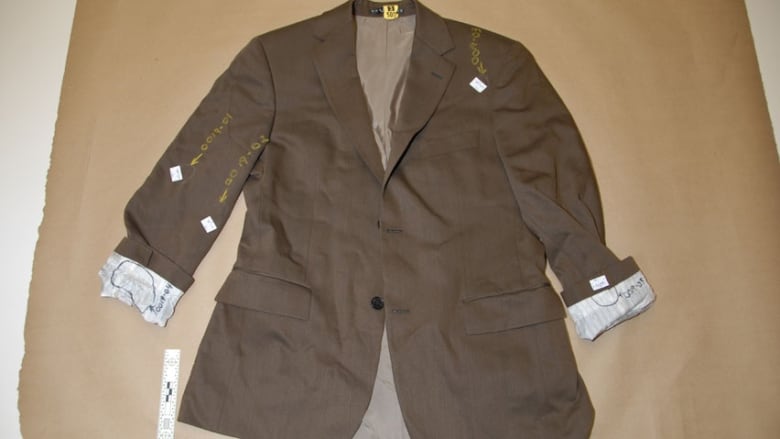Lawyer Kathleen Lordon named to examine police handling of Oland murder
Former crown prosecutor will look at problems with Saint John police work brought up during the murder trial

The New Brunswick Police Commission has named lawyer and former crown prosecutor Kathleen Lordon to examine the Saint John Police Force's handling of the Richard Oland murder case.
This comes after a number of revelations during the high-profile trial about the police force's work during thefour-year investigation.
Lordon's credentials make for a lengthy list; in addition to being a former crown prosecutor in New Brunswick, she is a former member of the Police Commission, the Vice Chair of the Complaints Committee for the Law Society of New Brunswick and was a founding member of the Canadian Association of Civilian Oversight of Law Enforcement.
She has extensive investigative experience with the N.B. Police Act, Corrections Canada, National Parole Board and workplace harassment.
Lordon is currently a partner at Begley Lordon, a Moncton firm specializing in workplace law.
No timeline for her report has been disclosed.
Once the investigation is completed, the results and any recommendations will be sent to the minister of public safety for consideration.

Oland's defence team has said it plans to file an appeal.
Nicole Paquet, chair of the Saint John Board of Police Commissioners, requested the review by the independent provincial oversight body.
Paquet told CBC News the review is necessary for the public's confidence in the force, and that it will also be important for the morale of the police officers themselves.
It's not about laying blame, she said, it's about finding areas that need to be improved.
"It's very important that we look at those areas brought forward by [Court of Queen's Bench] Justice John Walsh in his instructions to the jury [at Dennis Oland's murder trial] to assure the public that those areas have been addressed, and if they still need to be addressed, that measures will be taken to restore public confidence in the investigative practices and policies of the Saint John Police Force."
Problems with investigation
Several problems with the investigation were brought forth during the high-profile trial.
Dennis Oland was charged on Nov. 13, 2013.
The jury heard evidence that police failed to protect the crime scene from possible contamination, used the bathroom located in the foyer outside the victim's office for two days before it was forensically tested, and never tested the back door for evidence.
Police also failed to ask the pathologist whether a drywall hammer was a possible weapon.

Second Investigation
There's a second investigation underway as a result of the trial.
Saint John Police Chief John Bates, who joined the force in 2015, had previously asked the provincial commission to investigate allegations about Deputy Chief Glen McCloskey that arose during testimony at the trial.
Retired staff sergeant Mike King testified McCloskey, who was an inspector at the time, had suggested he lie to the court about him having been at the crime scene.
McCloskey denied the allegations under oath, but admitted he entered crime scene twice once to "observe the body" and a second time out of "curiosity."
Former Fredericton police chief Barry MacKnight had already been appointed to investigate that complaint.












_(720p).jpg)


 OFFICIAL HD MUSIC VIDEO.jpg)
.jpg)



























































































